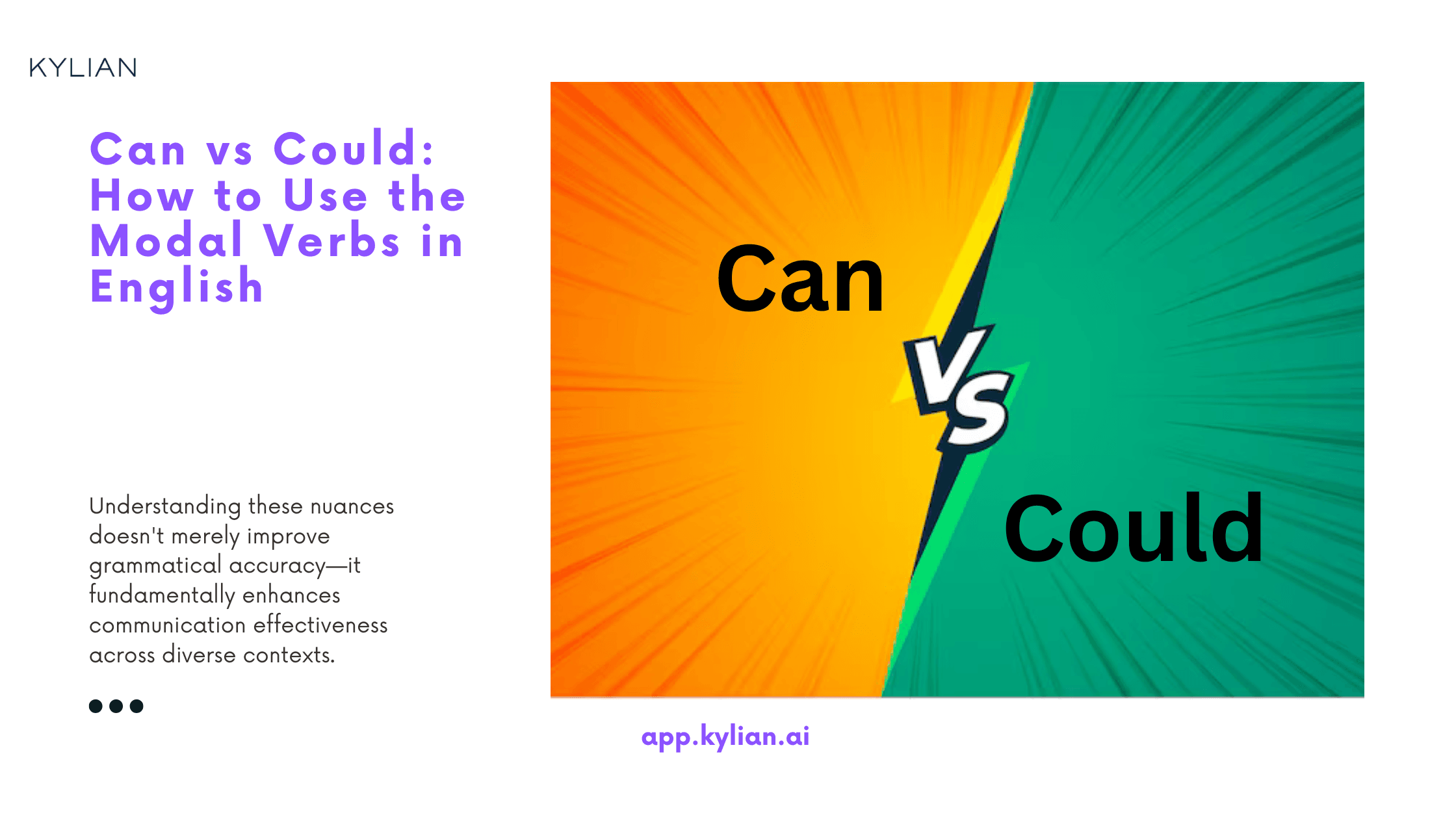Where Most People Come to Learn A Language
Our blog covers language learning tips and hacks we've acquired over the years


Past Tense of Check in English
Understanding verb tense transformations constitutes a fundamental aspect of English language mastery. The verb "check" represents one of those seemingly straightforward verbs that can actually prompt questions when writers and speakers need to express it in past contexts. This comprehensive analysis explores the past tense forms of "check," examining its regular conjugation patterns while addressing common misconceptions and usage variations. The significance of mastering the past tense of "check" extends beyond simple grammar exercises—it directly impacts effective communication in professional, academic, and everyday scenarios. By exploring this specific verb transformation, we gain insights into broader linguistic patterns that enhance overall English proficiency.
![What Does "Despite the Fact" Mean? [English]](/_next/image?url=https%3A%2F%2Fcdn.sanity.io%2Fimages%2F147z5m2d%2Fproduction%2F720058fb19263aa8bad0dc8d07c0806449e06f8d-2240x1260.png&w=3840&q=75)

What Does "Despite the Fact" Mean? [English]
Communication hinges on our ability to express contrasting ideas effectively. When we need to acknowledge one reality while emphasizing another potentially contradictory point, specific linguistic constructions become essential. The phrase "despite the fact" serves as a powerful contrastive tool in English, allowing speakers to juxtapose seemingly opposing ideas while maintaining logical coherence. This phrase doesn't simply connect thoughts—it fundamentally shapes how we process information, influencing everything from academic writing to everyday conversations. Understanding when and how to use "despite the fact" properly elevates your English proficiency and enables more sophisticated expression of complex relationships between ideas. This comprehensive examination explores the meaning, usage, and alternatives to this crucial phrase, providing practical guidance for learners and writers seeking to master contrastive expressions in English.


Simple Past Tense of "Put" in English
Understanding irregular verbs remains a critical challenge for English language learners at all proficiency levels. Among these linguistic anomalies, the verb "put" stands out due to its unchanging form across multiple tenses—a feature that both simplifies and complicates its usage. The simple past tense of "put" maintains the same spelling and pronunciation as its present form, creating a deceptive simplicity that often leads to confusion when learners attempt to apply regular verb patterns. This distinctive characteristic of "put" demands focused attention, especially since it represents a pattern followed by several other high-frequency English verbs. Mastering the correct usage of "put" in the past tense provides not only practical communication skills but also insights into the historical development of English verb forms.


Whatever Slang in English: Origin, Usage & Cultural Impact
Communication constantly evolves, particularly in the realm of colloquial expressions. Among these, the term "whatever" stands out as a versatile linguistic device that has transformed from a simple pronoun into a cultural phenomenon with significant social implications. This exploration delves into the complexities of "whatever" as slang, examining its origins, usage patterns, cultural significance, and proper contextual application.


What Goes Up Must Come Down: Explained Simply
The phrase "what goes up must come down" represents one of the most fundamental principles observed in our physical universe. This expression has transcended its origins in physics to become embedded in our collective consciousness as a metaphor for inevitable cycles and consequences. When we examine this principle critically, we find it offers profound insights into not just natural phenomena, but human affairs, economic systems, and linguistic patterns. This exploration matters now more than ever as we face unprecedented volatility in global markets, climate patterns, and social structures. Understanding cyclical patterns provides essential context for navigating complexity. The universal application of this principle extends from the most mundane objects to complex systems like economies and civilizations. While gravity ensures physical objects return to earth, similar forces operate in markets, where unsustainable growth inevitably corrects, and in personal endeavors, where periods of success often lead to complacency and subsequent decline. This analysis will dissect the principle across multiple domains, offering practical insights on recognizing patterns, preparing for downturns, and developing resilience in the face of inevitable cycles.


What is the Past and Past Participle Form of Shoot?
The English language presents numerous challenges for learners and native speakers alike, particularly when navigating its irregular verb forms. Understanding the past and past participle forms of irregular verbs is crucial for effective communication. The verb "shoot" stands as a perfect example of this complexity, with its unique transformation patterns that don't follow the standard "-ed" ending of regular verbs. Mastering these irregular forms isn't merely an academic exercise—it's fundamental to expressing yourself accurately in various contexts, from casual conversations to professional writing. Whether you're describing a photography session from yesterday, explaining what happened during a basketball game, or discussing a film production, knowing how to use "shoot" correctly in its past forms enables precise communication. This comprehensive guide explores the past and past participle forms of "shoot," examining their correct usage through practical examples, identifying common mistakes, and providing effective strategies for remembering these forms. By the end of this article, you'll have gained a thorough understanding of how to use this versatile verb correctly across all its tenses.


Warehouse Abbreviation: Meaning & Usage Guide
Communication efficiency stands as a cornerstone in logistics and supply chain management. When professionals need to convey complex warehouse information quickly, abbreviations become indispensable tools. These shorthand notations streamline everything from inventory documentation to operational protocols, saving valuable time while maintaining clarity in an industry where precision matters. The strategic deployment of warehouse abbreviations transforms potentially lengthy communications into concise messages that enhance productivity across warehouse environments. For newcomers to the field, understanding these specialized codes unlocks a critical dimension of industry communication that separates seasoned professionals from beginners. This comprehensive guide examines the most essential warehouse abbreviations, their practical applications, and their significance in optimizing operational efficiency. Whether you're a warehouse manager, logistics specialist, or supply chain professional, mastering these abbreviated terms will elevate your communication capabilities in this fast-paced sector.


6 Joyful English Idioms: Sayings to Show Happiness
Expressing emotions in a second language presents unique challenges. When learning English, mastering idioms that convey happiness adds depth and authenticity to communication. These expressions transcend literal translation, allowing learners to embrace cultural nuances and connect more meaningfully with native speakers.


English Sports & Games: Top Vocabulary & Verbs Guide
Physical activity transcends mere exercise—it represents a cognitive enhancement opportunity. Research consistently demonstrates that physical wellness correlates directly with mental acuity. Beyond weather forecasts and political developments, sporting activities provide rich conversational material across cultures. This comprehensive guide explores essential sports vocabulary in English, focusing specifically on physical activities rather than board games, card games, or video games. By mastering these terms and understanding the crucial verbs that accompany them, you'll navigate sports discussions with newfound confidence.


16 Expert Steps + Bonus Tips for Moving to Spain
Spain consistently ranks among the most desirable destinations for relocation. Its Mediterranean climate, relaxed lifestyle, and rich cultural heritage attract millions of foreign nationals annually. According to 2022 data from the INE (Instituto Nacional de Estadística), over five million foreign-born residents call Spain home—representing more than 11% of the total population. This significant expatriate presence isn't surprising. Spain offers busy professionals a welcome work-life balance shift, provides families with excellent educational options, and presents retirees with an enviable quality of life. The country also consistently ranks among the world's most family-friendly nations, making it particularly attractive for those raising children. Successful relocation requires careful planning and preparation. This comprehensive guide provides a step-by-step approach to moving to Spain, featuring insights from expatriates who have successfully navigated the process.


50 wichtige HR-Abkürzungen aus dem Personalwesen
Die Personalwirtschaft ist ein Fachbereich, der durch seine zahlreichen Fachbegriffe und spezialisierten Abkürzungen für Nicht-Eingeweihte oft unzugänglich erscheint. Im internationalen Kontext dominieren besonders englische Akronyme, die für viele Deutsche eine zusätzliche Sprachbarriere darstellen. In dieser umfassenden Zusammenstellung präsentieren wir die 50 relevantesten HR-Abkürzungen und Akronyme mit Übersetzungen und praktischen Anwendungsbeispielen.


Can vs Could: How to Use the Modal Verbs in English
Mastering the distinction between "can" and "could" represents a critical milestone for English language learners. Though frequently used interchangeably in casual conversation, these modal verbs carry subtle but significant differences in meaning, formality, and implication. Understanding these nuances doesn't merely improve grammatical accuracy—it fundamentally enhances communication effectiveness across diverse contexts.


5 English Struggles for Spanish Speakers & Fixes
Learning English presents unique challenges for Spanish speakers, yet thousands have successfully achieved fluency by addressing specific linguistic hurdles. Understanding these challenges is the first step toward mastering English effectively.


How to Learn Italian: Your Guide from Basics to Fluency
Italian beckons language enthusiasts with its melodic cadence and rich cultural heritage. The allure of mastering phrases like bellissima, tesoro, and dolcezza draws many to begin this linguistic journey. But beyond the romantic appeal lies a practical question: what does it take to achieve true fluency? This comprehensive guide breaks down the process into actionable steps, providing clarity for anyone looking to master the language of Dante and Da Vinci.


How to Write Korean Letters: Mastering Hangul Stroke Order
Learning to write Korean begins with understanding the proper stroke order of Hangul, the Korean alphabet. Far from being an arbitrary convention, stroke order in Korean writing follows logical patterns that enhance both speed and legibility. This guide will take you through everything you need to know about writing Korean characters correctly, from basic principles to practical application.


Top-Paying Side Hustles in Every U.S. State (2025 Analysis)
Economic challenges demand creative income solutions. Discover which side gigs pay the most in your state and how to leverage them effectively.


Describing Graphs, Charts & Diagrams in Presentations
The ability to effectively communicate data through visual elements transforms ordinary presentations into compelling narratives. When you master the vocabulary and techniques for describing graphs, charts, and diagrams in English, you position yourself not just as a presenter, but as an authoritative guide who can translate complex information into accessible insights. For non-native English speakers, this skill becomes particularly crucial—whether you're preparing for high-stakes business presentations or standardized language assessments like the IELTS, where data visualization interpretation frequently appears. The following comprehensive guide will equip you with the precise terminology and structured approach necessary to articulate visual data with confidence and clarity.


Words That Look Identical But Sound Different: Heteronyms
English presents a labyrinth of complexities that often challenge even the most dedicated language learners. Among its numerous linguistic quirks, heteronyms stand out as particularly intriguing elements that demonstrate English's fascinating inconsistencies. These words represent a perfect example of why English pronunciation continues to mystify and amuse both native and non-native speakers alike.


Hiragana: The Ultimate Guide for Japanese Beginners
Language acquisition requires a foundation, and for Japanese learners, that foundation is hiragana. This comprehensive guide examines why hiragana deserves priority in your Japanese language journey, how it functions within the Japanese writing system, and provides effective strategies for mastering it efficiently.


The Rudest U.S. Cities in 2025: Where Incivility Thrives
Urban rudeness – we've all experienced it. Whether it's someone blasting music in public spaces or blocking grocery store aisles with oblivious cart placement, uncivil behavior shapes our perception of cities and their residents. But which American cities truly deserve the title of "rudest" in 2025? Our comprehensive study surveyed thousands of Americans across major metropolitan areas to quantify rudeness and understand how cultural behavior patterns emerge in different regions. We analyzed everything from public space etiquette to service staff treatment, creating a definitive ranking of America's most discourteous urban centers.


Italian Object Pronouns Explained
Object pronouns represent a critical junction in Italian language acquisition. They function as the difference between elementary phrases and fluid, natural-sounding Italian conversation. Understanding the nuances of both direct and indirect pronouns equips learners with essential tools to elevate their language proficiency beyond basic communication.


Adjectives and Adverbs: The Critical Distinction in English
Mastering the subtle yet significant differences between adjectives and adverbs remains a persistent challenge for English language learners, regardless of proficiency level. This comprehensive guide dissects these essential parts of speech, equipping you with the knowledge to identify them accurately and employ them correctly in your everyday communication.


Mastering Korean Colors: A Guide to Nouns and Adjectives
Color vocabulary forms the foundation of descriptive language in any linguistic system. For Korean language learners, understanding how to express colors properly unlocks a new dimension of communication capability. Beyond basic vocabulary acquisition, mastering Korean color terms requires understanding their grammatical functions, usage patterns, and cultural context. This comprehensive guide will navigate you through the intricacies of Korean color terminology, examining both the linguistic mechanics and practical applications necessary for natural, nuanced expression.
![Choose vs. Chose: What Do They Mean? [English]](/_next/image?url=https%3A%2F%2Fcdn.sanity.io%2Fimages%2F147z5m2d%2Fproduction%2Fd2b6b5ed066c15c15738b1f2fa9e0f7270857055-2240x1260.png&w=3840&q=75)

Choose vs. Chose: What Do They Mean? [English]
The English language contains numerous verb forms that, despite their similarity in spelling, carry distinct temporal implications. "Choose" and "chose" exemplify this linguistic phenomenon. Understanding the correct application of these terms not only enhances grammatical precision but also clarifies the temporal context of communication. This comprehensive analysis explores the nuanced distinctions between these commonly confused verb forms, providing clarity for language learners and native speakers alike.